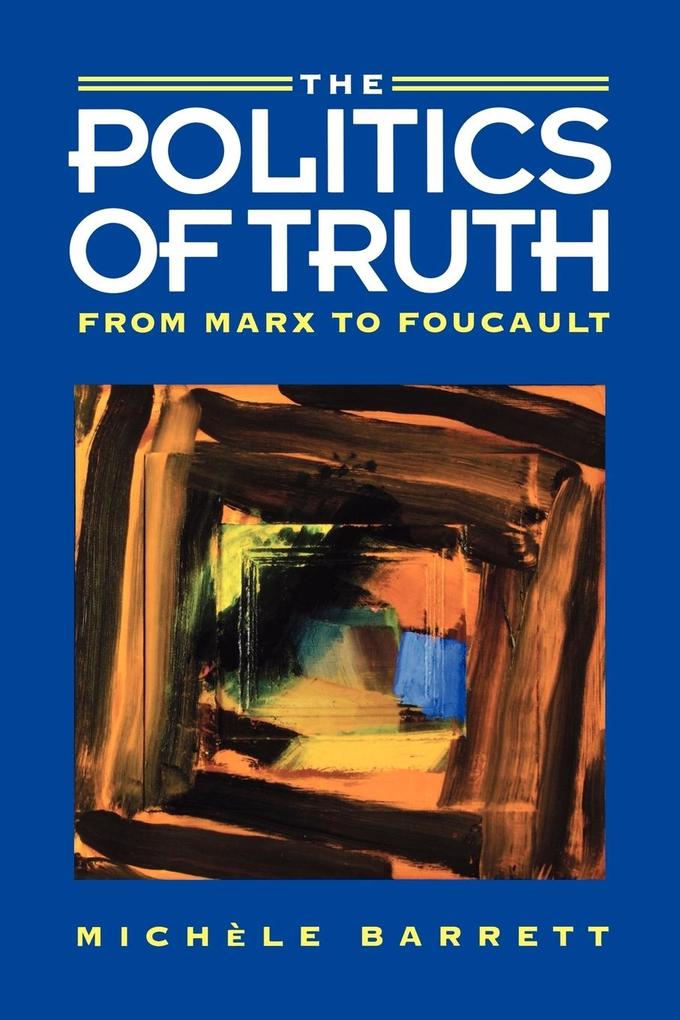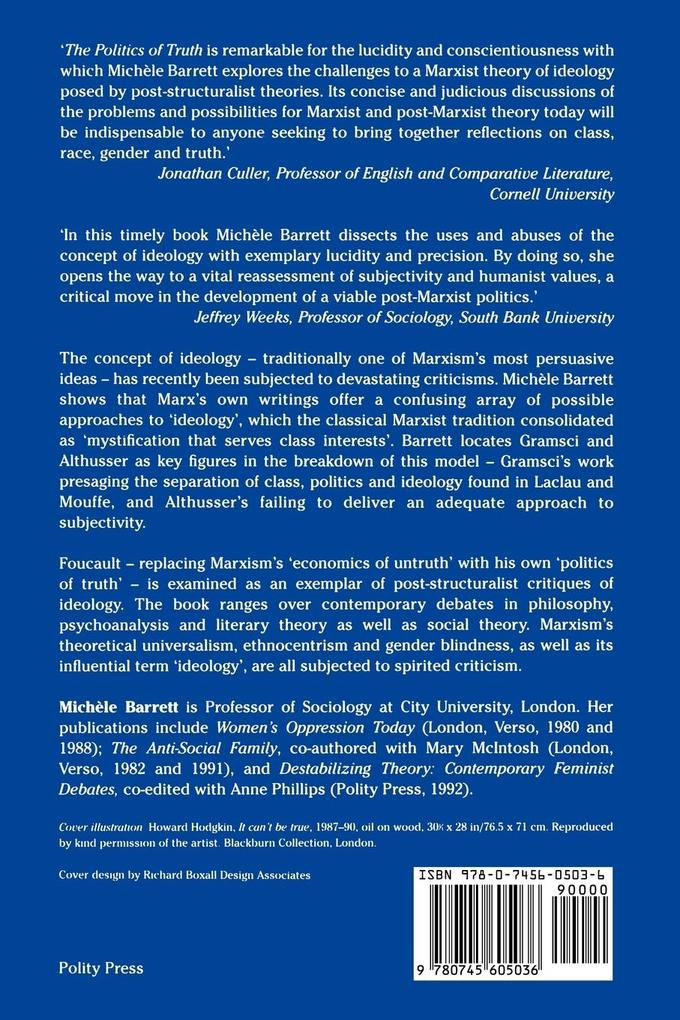
Zustellung: Sa, 19.07. - Do, 24.07.
Versand in 2 Wochen
VersandkostenfreiBestellen & in Filiale abholen:
The concept of ideology - traditionally one of Marxism's most persuasive ideas - has recently been subjected to devastating criticism. Michele Barrett shows that Marx's own writings offer a confusing array of possible approaches to 'ideology', which the classical Marxist tradition consolidated as 'mystification that serves class interests'. Barrett locates Gramsci and Althusser as key figures in the breakdown of the classical Marxist conception - Gramsci's work presaging the separation of class, politics and ideology found in Laclau and Mouffe, and Althusser's failing to deliver an adequate approach to subjectivity. Foucault - replacing Marxism's 'economics of untruth' with his own 'politics of truth' - is examined as an exemplar of post-structuralist critiques of ideology.
Inhaltsverzeichnis
Preface and Acknowledgements
Part I: Classical Marxism and Theories of Ideology
1. Marx: Inheriting Contradictions
2. Ideology: Critique or Description?
3. Problems of Science and Determinism
Part II: Collapse of the Marxist Model
4. Ideology, Politics, Hegemony: From Gramsci to Laclau and Mouffe
5. Subjectivity, Humanism, Psychoanalysis: Beyond Althusser's Lacan
Part III: The Politics of Truth
6. History, Discourse, 'Truth' and Power: Foucault's Critique of Ideology
7. Conclusion: Post-Marxism and the Concept of Ideology
Index
Part I: Classical Marxism and Theories of Ideology
1. Marx: Inheriting Contradictions
2. Ideology: Critique or Description?
3. Problems of Science and Determinism
Part II: Collapse of the Marxist Model
4. Ideology, Politics, Hegemony: From Gramsci to Laclau and Mouffe
5. Subjectivity, Humanism, Psychoanalysis: Beyond Althusser's Lacan
Part III: The Politics of Truth
6. History, Discourse, 'Truth' and Power: Foucault's Critique of Ideology
7. Conclusion: Post-Marxism and the Concept of Ideology
Index
Produktdetails
Erscheinungsdatum
15. Februar 1992
Sprache
englisch
Seitenanzahl
204
Autor/Autorin
Michele Barrett
Verlag/Hersteller
Produktart
kartoniert
Gewicht
287 g
Größe (L/B/H)
228/149/15 mm
ISBN
9780745605036
Entdecken Sie mehr
Pressestimmen
'In this timely book, Michele Barrett dissects the uses and abuses of the concept of ideology with exemplary lucidity and precision. By doing so, she opens the way to a vital reassessment of subjectivity and humanist values, a critical move in the development of a post-Marxist politics.' Jeffrey Weeks, Bristol Polytechnic 'The Politics of Truth is an engaging and at times impassioned read, and Barrett is to be commended for her remarkable lucidity in communicating some pretty obscure formulations and debates.' Sociology 'Barrett's book is indispensable for all those interested not only in the current problems surrounding Marxism, but also in ways of dealing with them.' Women in Philosophy Newsletter 'An essential contribution to current debates in a field with central significance for the future of social theory.' Theory, Culture and Society
Bewertungen
0 Bewertungen
Es wurden noch keine Bewertungen abgegeben. Schreiben Sie die erste Bewertung zu "The Politics of Truth: From Marx to Foucault" und helfen Sie damit anderen bei der Kaufentscheidung.










